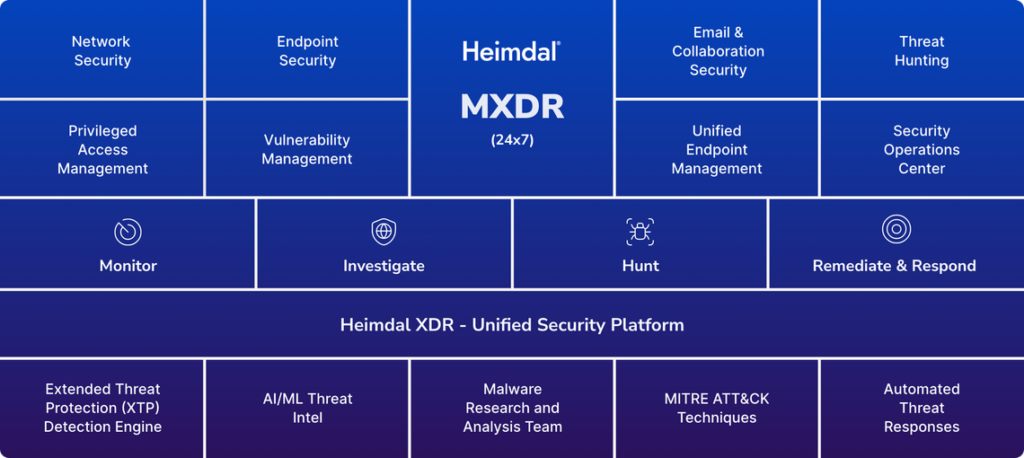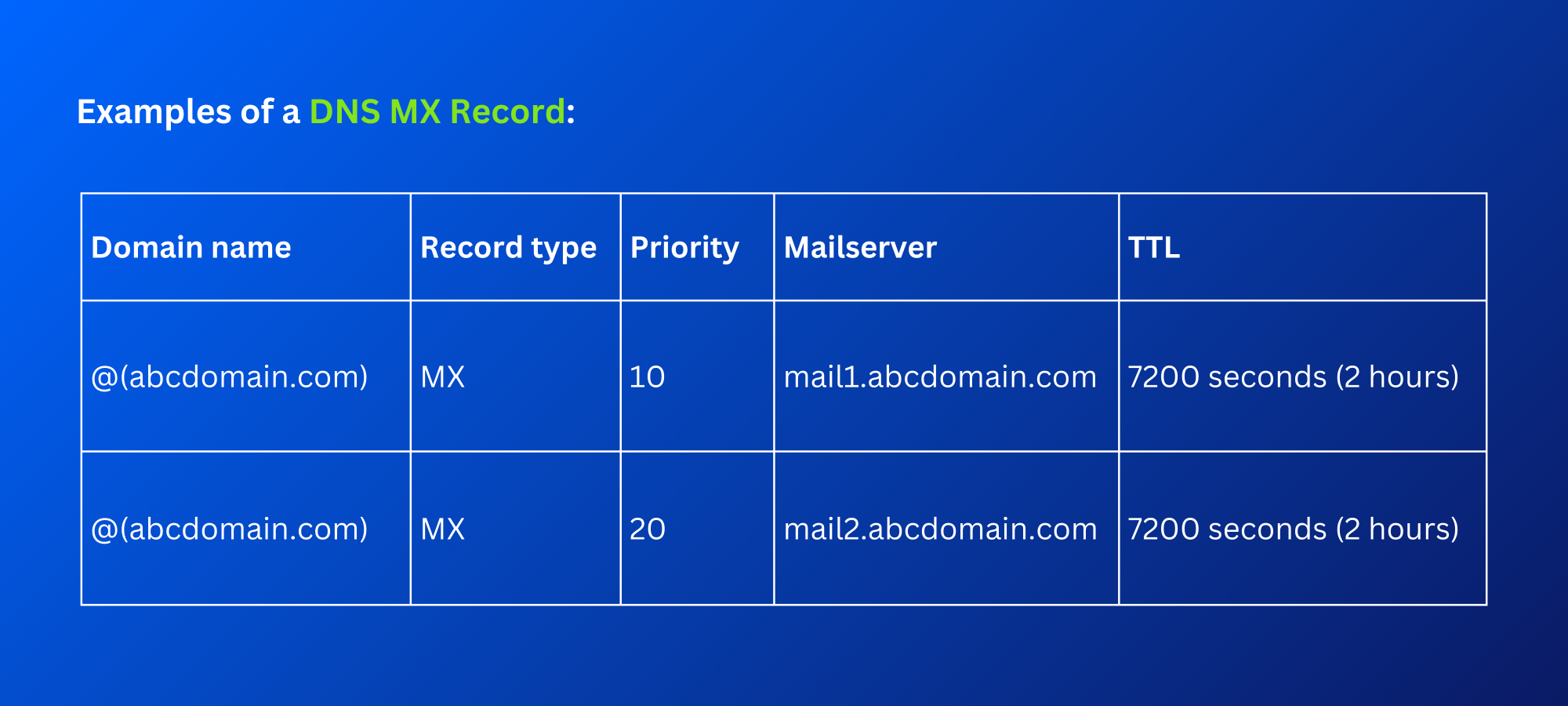Managed Security Services (MSS) refers to outsourcing security functions to a specialized provider. All MSS main types aim to offer top technology and expertise at a convenient price. Not all of them are a good match to your company.
Let’s see how each of them helps businesses protect their digital environments against advanced threats.
Key takeaways:
- AI and machine learning behavior analysis is a must-have feature of security tools
- installing a traditional antivirus is no longer enough to keep you safe
- technology alone does not do it all. You also need an analysis team
- using managed security services lowers defense costs
Three main solution types for Managed Security Services
MSS solutions are a good choice for companies that don’t run an in-house Security Department. Security analysts and cybersecurity experts can be hard to find and are pricy. Yet, you should find a way to benefit from their expertise to protect your IT infrastructure.
There are two key reasons why organizations should focus on cybersecurity:
- Digitalization has increased online exposure, leading to more frequent cyberattacks.
- Cyber threats have become too complex for traditional antivirus solutions to handle.
Managed Security Services come in three main options that businesses can choose from:
MXDR Platforms
Managed Extended Detection and Response (MXDR) platforms offer all-in-one security coverage and the manpower to run it 24/7.
Using an MXDR platform comes with two main perks:
- MXDR solutions offer all the tools you need to prevent advanced threats. You get a NextGen AV, DNS Security, Patch Management, Privileged Access Management, etc.
The platform coordinates all tools to communicate in real-time and work seamlessly. Some of the best MXDR platforms, like Heimdal’s, include AI-driven analytics. This way you gain protection against unknown threats too.
Heimdal’s MXDR delivers threat hunting, AI-powered behavioral analysis, and automated incident response.
- MXDR platforms solve the need to run an in-house IT security department. They are cost-effective because they bring all the tools you need. Besides, they provide industry experts which are hard to find otherwise.
[youtube https://www.youtube.com/watch?v=q7RQ1mmxuKg?si=e6emOzcXbwtCixvc]
Managed Security Service Providers (MSSP)
MSSPs handle threat monitoring, incident response, vulnerability management, and compliance reporting for you. Depending on your needs, you can partner with an MSSP for outsourcing:
- your entire cyber defense
- specific parts that you don’t want to or can’t handle in-house
It’s like cybersecurity as a service (CSaaS). For a subscription fee, you get 24/7 monitoring and protection. Yet, this managed security service solution gives no control over the tools they use.
Managed Service Providers (MSP) that offer security services
An MSP manages your whole IT infrastructure and its processes. Some of them combine IT management with security services. Yet, an MSP’s main focus is maintaining the company’s productivity.
This is one of the main differences between an MSP and an MSSP provider.
Benefits of Managed Security Services
Managed Security Services come with more benefits than other cybersecurity solutions for businesses:
Enhanced Security Posture
Partnering with security experts allows businesses to cover:
- threat detection
- incident response
- vulnerability management
- cut the cost of hiring an in-house SOC team
MSSPs and MXDR platforms offer 24/7 monitoring. This ensures real-time threat detection and response in the absence of in-house experts.
Cost-Effective
Hiring and training an in-house team of cybersecurity experts is costly. Managed Security Services solutions offer expertise at a fixed, competitive price.
Also, they ease access to advanced technologies. To keep up with progress, you’d need to search, test, buy, and install new security software. Each of these steps would come with a cost in money and human resources.
Whether you subscribe to an MXDR platform, partner with an MSSP, or an MSP, the final cost will be far lower. Maintaining an in-house security team and buying best-on-the-market security software is expensive.
Scalability and flexibility
Managed Security Services are scalable by design. Thus, they can expand along with your business. This means MSSs can match the requirements of various business models:
- small companies
- expanding companies
- large organizations with fluctuating needs
- short staffed enterprises
This flexibility also extends to compliance. MSS providers can adapt to various industry standards and regulations.
Core capabilities of MSS
Knowing what core capabilities an MSS should offer will help you choose the best cybersecurity solution. Here are some key capabilities you should expect:
Endpoint security
Endpoint security protects devices like computers and servers from threats like phishing and ransomware. During an attack, the EDR detects the threat and isolates the device to prevent infection from spreading.
Let’s imagine ransomware infects an employee’s laptop. First, the endpoint security solution will detect the attack. Further on, it cuts all communication between that device and the rest of the network.
Network security
Network security ensures secure data transfers and prevents unauthorized access to your systems. It includes firewalls, VPNs, and intrusion detection systems to safeguard network activity.
For example, an online store could use network security solutions to protect its payment system. This will prevent hackers from accessing customer credit card data.
Privileged access management
Privileged Access Management (PAM) controls who can access sensitive data and run system processes. It allows only authorized users to access critical data. PAM reduces the risk of both privileged access misuse cases:
- internal threat
- lateral movement
A financial institution, for example, could use PAM to limit access to the customers’ data. Only a few employees who need privileged rights to do their tasks should have access. As a safety measure and for compliance reasons, the tool would log and monitor their actions.
Threat detection and incident response
Threat detection and incident response solutions offer continuous monitoring of suspicious activity. Detecting a threat in time enables you to act on the spot, stop and contain the incident.
A spike in network traffic might signal a cyberattack. Detecting it in real-time and blocking the malicious communication prevents further damage.
The best-managed security services, be they MSP, MXDR, or MSSP, offer 24/7 support.
With Heimdal’s MXDR platform, this translates into being able to address all the alerts that occur, every day.
Managed Extended Detection and Response is basically taking a Next Generation Advanced detection response Cloud platform that goes beyond the traditional level of technology and is fully managed by experts.
Three main benefits of this are hands-on experience, massive cost saving, and being able to process all your alerts.
By industry, people only get the chance to process about 40% of the alerts that they handle on a day-to-day basis.
<
p data-block-id=”6fb0cd94-b0df-4e5f-8930-0cd2720479c9″>Source – Andrei Hinodache, Cybersecurity Community Leader @Heimdal
Vulnerability management
MSSs’ vulnerability management capability centers around vulnerability assessment and patch management. An MSS ensures patching all software in time, to protect against known vulnerabilities.
This capability fixes flaws in your system before attackers can exploit them. Top-level Managed Security Services scan for outdated software, open ports, and system misconfiguration. Thus, they can spot an unclosed vulnerability before hackers do.
Email security
75% of cyber threats arrive via email. This makes email security a core capability for MSSs. It protects your environment from email-based attacks by:
- blocking phishing attempts
- recognizing malicious attachments
- turning suspicious links un-clickable
Compliance and reporting
A managed security services solution should support your business meet compliance standards. The main objectives are keeping data secure and providing regular reports on security activities.
For instance, an MSS provider can help a healthcare organization achieve HIPAA compliance. Thus, it should ensure your data is encrypted both in transit and storage. To achieve compliance, it should also control access to that data.
Must-have features of top MSSs
A high-quality Managed Security Service should offer the following features:
Automation
Automation is crucial for speeding up security processes and minimizing human error. Automated tools can identify and respond to threats in real-time. Thus, they improve the efficiency of your security system.
Unification
Unified cybersecurity platforms give businesses full visibility across their entire network. Bringing all security tools under one roof makes it easier to manage and monitor threats. It also reduces the complexity of security operations.
AI and Machine Learning Behavioral Analysis:
Hackers moved on to using AI and machine learning for their attacks. Domain generation algorithms are only one example.
The managed security service solution you choose must also keep up with new technologies. Traditional tools like antiviruses only focus on known threats. AI-powered solutions detect unknown ones, too. They use machine learning to train and recognize malicious behavior patterns. It is the case of Heimdal’s DNS Security Network module, which is part of the MXDR platform.
Conclusion
Managed Security Services offer comprehensive, cost-effective solutions. Outsourcing security to an MSS helps businesses that can’t run an in-house security department.
MSSs offer 24/7 monitoring, ensure rapid incident response, and continuous protection. Meanwhile, businesses can focus on growth and productivity improvement.
Additionally, MSS solutions are scalable. They can adapt to the changing needs of both small startups and large enterprises. Using a managed security service provides the flexibility you need. It offers cost-effective access to the latest technology and skilled professionals.
Frequently Asked Questions (FAQ)
What is the difference between an MSSP and an MSP?
An MSSP specializes in cybersecurity services like threat detection and incident response. An MSP provides IT management, which can include cybersecurity as part of a broader offering.
How do Managed Security Services improve cybersecurity?
Managed Security Services enhance cybersecurity by:
- Continuous monitoring
- Threat detection
- Real-time incident response
- Providing the experts you need to manage security processes 24/7
Is an MXDR platform better than traditional antivirus software?
An MXDR platform offers comprehensive protection and visibility. Traditional antivirus software can only detect and quarantine threats that were already reported.
How cost-effective are the Managed Security Services?
MSS is more cost-effective than hiring a full in-house cybersecurity team. Why is that? For a fixed price, you get:
- 24/7 access to security experts
- upgraded security tools, to keep up with technological progress
- zero research, training, and implementation costs
Can Managed Security Services scale with my business?
Yes, MSSs are scalable by design. Your business might grow or experience fluctuating security needs. In this case, MSS providers can adjust their services to match your new requirements.
If you liked this article, follow us on LinkedIn, Twitter, Facebook, and Youtube, for more cybersecurity news and topics.






